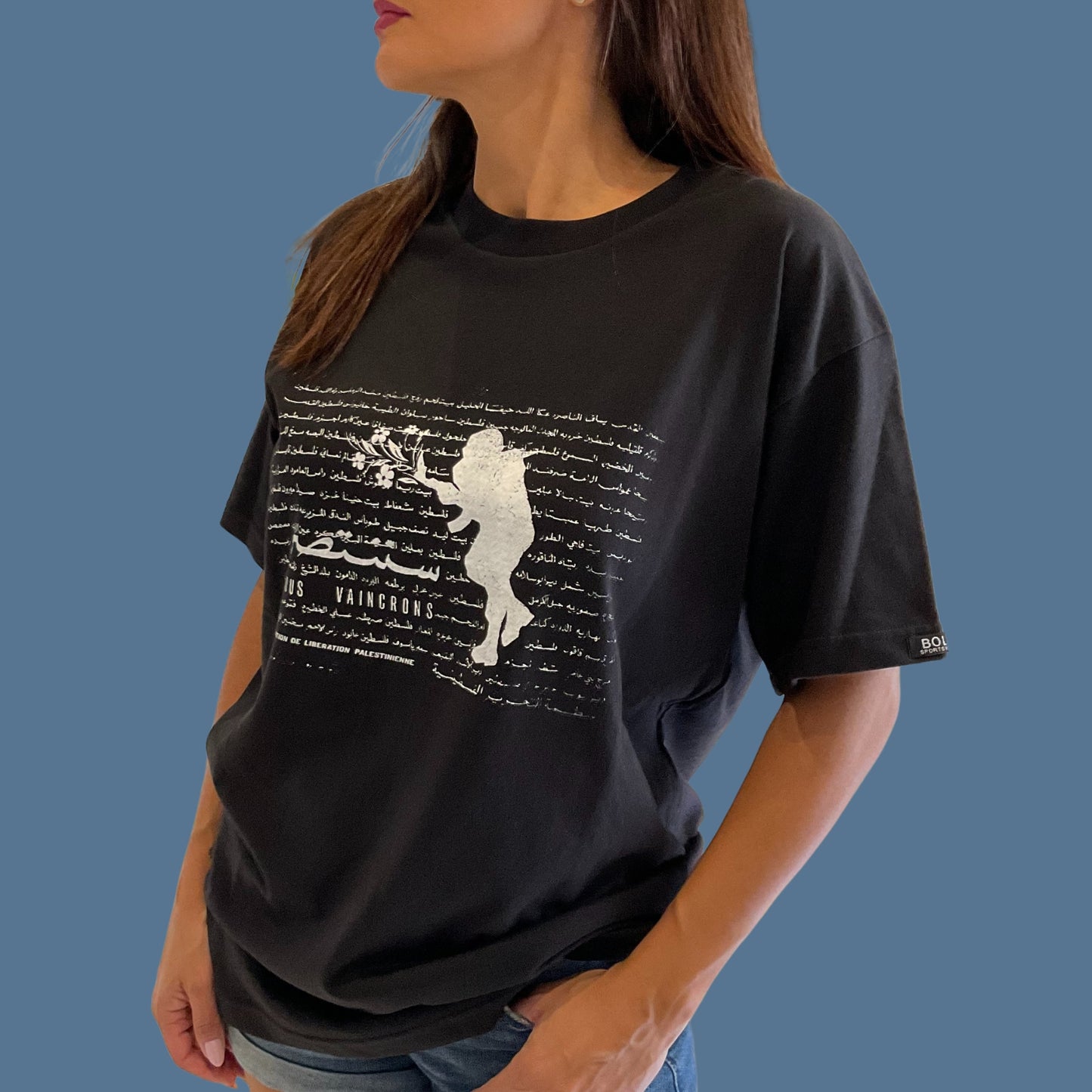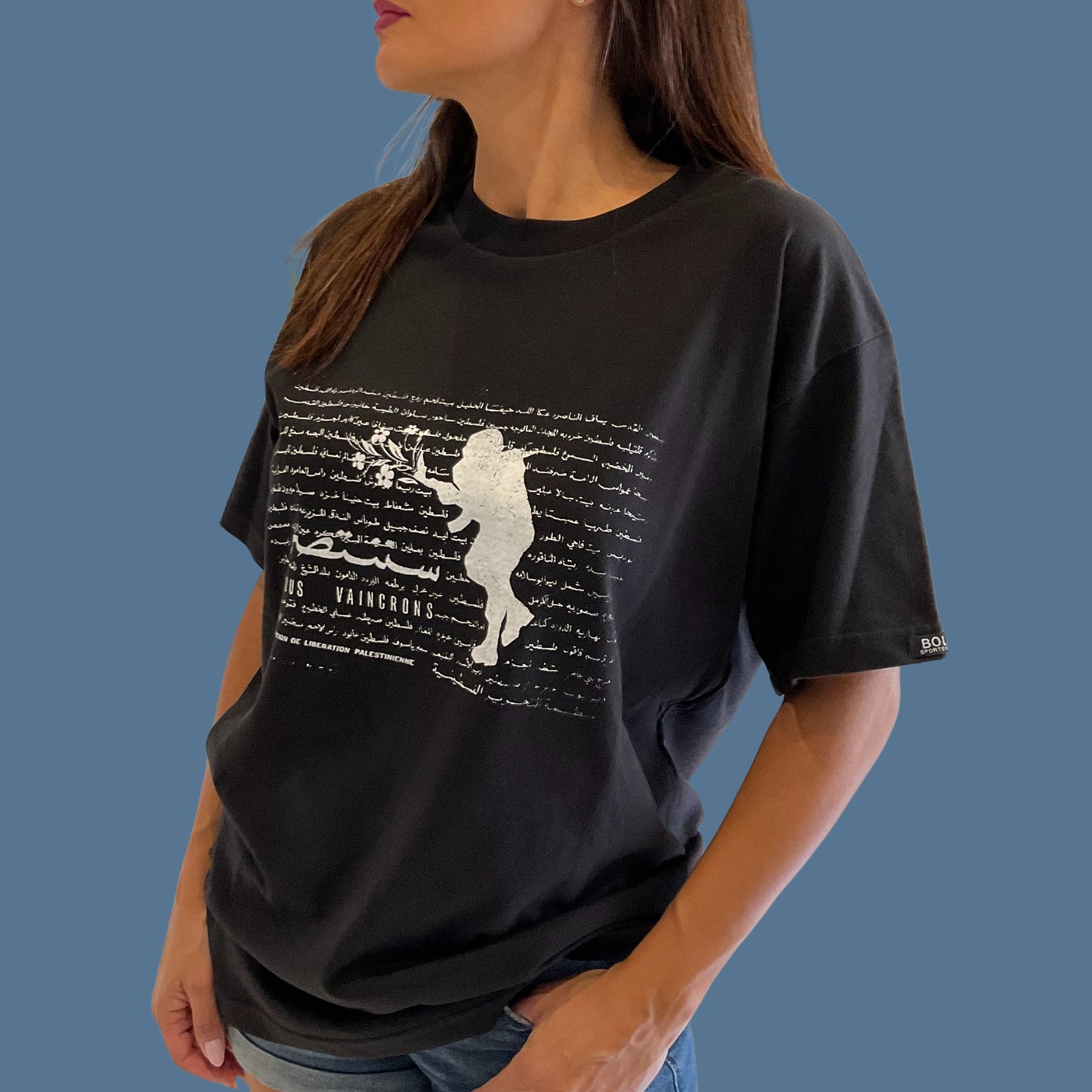Limited Edition Nous Vaincrons Black T-shirt
Limited Edition Nous Vaincrons Black T-shirt
By Jameel Shammout
In Clothing & Accessories
Couldn't load pickup availability
Stock level: 1 left
Item details:
▸ Features: Limited Edition▸ Materials: Cotton
▸ Art technique: Printmaking Illustration
▸ Net Weight (kg): 0.3
This black cotton t-shirt, a limited edition piece illustrated by Jameel Shammout (JamPam), is unisex and features a unique printed design on the front.
The Nous Vaincrons screen print is a tribute to the late Ismail Shammout, a pioneering Palestinian artist and the designer of this poster for the Palestinian Liberation Organisation in 1970. Shammout's early art focused on natural scenery, but after fleeing his hometown of Al-Lyd during the Nakba of 1948, he shifted his work to reflect the Palestinian struggle. His family eventually settled in the Khan Yunis refugee camp, where he continued his artistic journey.
This design by JamPam, Shammout's grandnephew, honors his legacy, featuring the names of Palestinian cities, a freedom fighter, and the phrase "We will be victorious" in Arabic and French.

About Jameel Shammout

Jameel Shammout aka JamPam is a street artist focusing on topics that reflect his upbringing as a Palestinian in the diaspora. Born in Amman in 2001 to a family without roots in any one location, Jam moved through 8 countries and 3 continents before the age of 20. This life meant that one of the few common links between all the cultures he had to adapt to was art—the only internationally shared language.
While it’s common for artists to utilize street art, murals, and graffiti to build hope and resilience within communities, JamPam took a different approach. Surrounded by foreign societies that didn’t understand the effects of long-term occupation of a homeland or what it means for the population in and outside of the country, he used street art to offer those communities a new perspective.
“I wanted people to understand that war and occupation mean more than just numbers and statistics. I wanted people to relate to, if even just so slightly, what the Middle East has been through, and continues to go through. This pushed me to move away from the traditional forms of raising awareness and instead focus on how I can guide someone’s mind into my own. How can I find the connections between what expresses my emotions and what expresses yours? Finding that link between populations is what ultimately creates empathy and understanding between them.”

